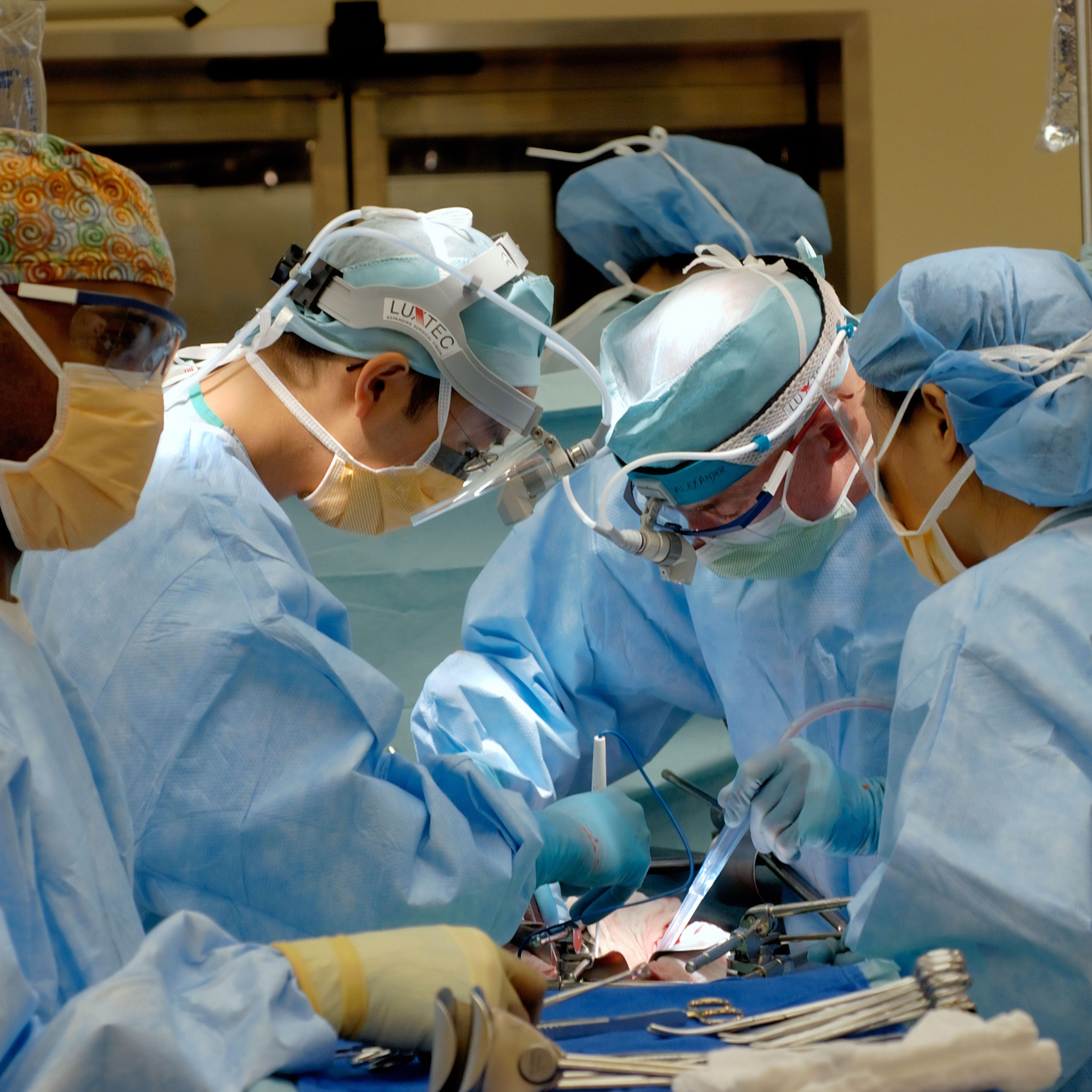HCV Antivirals May Improve Hepatocellular Carcinoma Survival Rates
Direct-acting antivirals or interferon may improve the rate of overall or recurrence-free survival for patients with liver cancer.
Credit: Unsplash / National Cancer Institute

Antiviral medication for hepatitis C virus (HCV) may provide increased odds for survival against hepatocellular carcinoma (HCC) among patients who underwent resection, according to new data.1
In a retrospective, single-center analysis of patients with HCV who underwent liver resection due to primary HCC, a team of Taiwan investigators reported that direct-acting antivirals (DAAs) and interferon were protective of overall survival. The team further observed that DAAs may be protective against hepatic decompensation in such patients as well.
Led by Hou-Ying Cheng, of the department of surgery at the National Taiwan University Hospital and College of Medicine, investigators sought to assess survival outcomes with DAAs or interferon in patients with HCV who underwent HCC-related liver resection. Viral hepatitis accounts for approximately 80% of all HCC cases,2 and previous pathogenetic research has shown a potential oncological benefit from antiviral therapies generally prescribed to patients with HCV.
“Antiviral therapy for HCV can not only cure HCV infection but may also prevent the progression of liver injury, which may progress to cirrhosis, decompensation, HCC, or a severe extrahepatic manifestation,” investigators noted. “Eradication of HCV infection with the goal of achieving sustained virologic response (SVR) is associated with reduced risk of mortality and of developing hepatic and extrahepatic complications.”
The reduction of recurring HCC following resection remains an unmet need in pharmacotherapy development, Cheng and colleagues wrote; there remains evidenced hope that HCC occurrence and recurrence could be reduced following SVR due to antiviral therapy.
The team retrospectively analyzed data of patients with exposure to hepatitis C who underwent primary hepatectomy for their HCC at the university hospital between 2013 – 2020. They identified the prevalence of interferon or DAA administration for HCV—the latter of which investigators noted first became available for patients with HCV in 2017. SVR 12 weeks after cessation of antiviral regimens (SVR12) were recorded for patients as well.
Investigators sought primary outcomes of overall survival (OS) and recurrence-free survival (RFS) after diagnosis of first HCC recurrence.
The final analysis included 247 patients with HCV exposure who underwent curative resection for primary HCC. Mean patient age was 67.8 years old; 63.6% were male. Approximately 1 in 5 (22.3%) patients had a family history of HCC. A majority (61.5%) of patients had a tumor ≥3 cm in size, and 24.7% had multiple tumors.
Two-thirds (n = 166 [67.2%]) of patients received an antiviral treatment for their HCV; 73 received interferon and 93 received DAAs. Among patients receiving interferon, 63 initiated treatment before their hepatectomy, versus 10 afterward; 90.4% achieved SVR12. Among patients receiving DAAs, 21 initiated treatment before their hepatectomy, versus 72 afterward; 94.6% achieved SVR12.
Patients were followed up with for a median 50.8 months. At endpoints of 1, 3, 5 and 7 years, OS rates were significantly improved among patients receiving antivirals versus those not receiving treatment:
- 1 year, 98.8% vs 87.7%
- 3 years, 95.0% vs 68.9%
- 5 years, 88.9% vs 60.9%
- 7 years, 85.7% vs 56.8%
During the follow-up period, a majority (n = 128 [51.8%]) of patients developed HCC recurrence. Median RFS duration was 42.3 years. Antiviral treatment again improved RFS rates up to 5 observed years:
- 1 year, 81.6% vs 60.4%
- 3 years, 59.0% vs 46.0%
- 5 years, 46.4% vs 26.7%
“Among patients who had received antiviral treatment, the baseline characteristics between subgroups using interferon and DAAs were all comparable without statistically significant differences,” investigators wrote. “Over half of the patients (57.0%) were genotype 1 in the DAA subgroup.”
Though the findings were limited by the bias of retrospective, single-center assessment design and the small cohort size, investigators concluded patients who received antiviral therapy for hepatitis C had improved overall survival and recurrence-free survival rates for post-resection primary HCC.
“With adjustment, antiviral treatments were associated with OS benefit and lower early recurrence rates, and DAAs might be protective against hepatic decompensation,” they wrote. “Although antiviral treatment suggests survival benefit, its influence on recurrence is less pronounced than that of nonviral factors.”
References
- Cheng HY, Hu RH, Hsiao CY, et al. Hepatitis C treatment and long-term outcome of patients with hepatocellular carcinoma after resection [published online ahead of print, 2023 Jul 4]. J Gastroenterol Hepatol. 2023;10.1111/jgh.16276. doi:10.1111/jgh.16276
- Global Burden of Disease Liver Cancer C, Akinyemiju T, Abera S et al. The burden of primary liver cancer and underlying etiologies from 1990 to 2015 at the global, regional, and national level: results from the Global Burden of Disease Study 2015. JAMA Oncol.; 2017: 1683– 1691.
2 Commerce Drive
Cranbury, NJ 08512
All rights reserved.